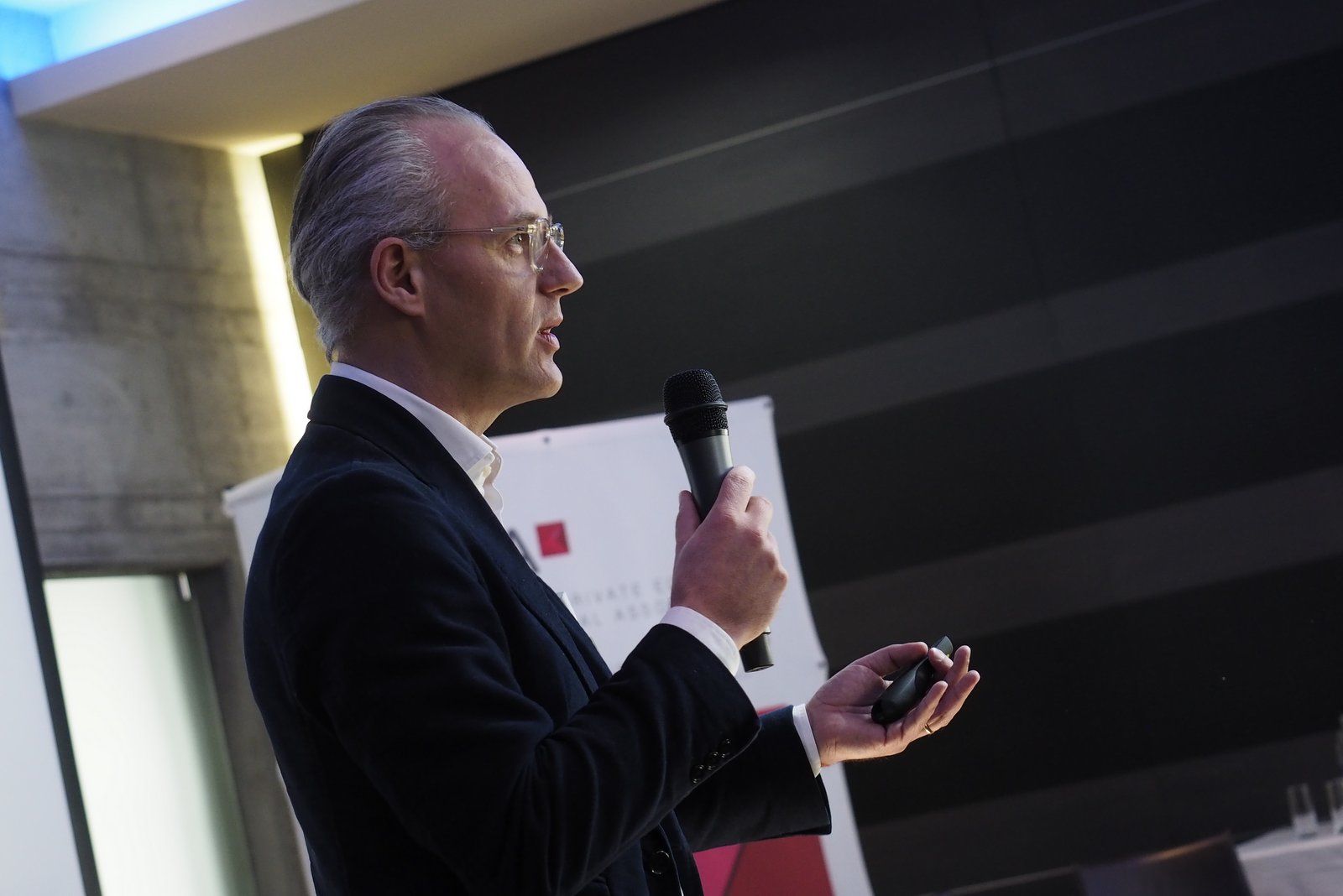Hedda Pahlson-Moller (Tiime), Clément Chenost (The Moringa Partnership), Corinne Molitor (International Climate Finance Accelerator), Lionel Cormier (Demeter) and Jérôme Wittamer (Expon Capital and President of LPEA).
Hedda Pahlson-Moller (Tiime) setting up the scene.
“Every investment has an impact such as economic growth or job creation but fund managers can go further by driving investment to areas where they can have a greater impact.”


Summary of the LPEA pre-Insights conference on Impact Investing
21/03/2018
LPEA’s second pre-Insights conference held today in Luxembourg focused on Impact Investing, a form of sustainable investment designed to generate a positive impact in environment and society.
The conference welcomed the participation of Clément Chenost (The Moringa Partnership), Lionel Cormier (Demeter), Corinne Molitor (International Climate Finance Accelerator), Hedda Pahlson-Moller (Tiime) and Jérôme Wittamer (Expon Capital and President of LPEA) who moderated the session.
The session was opened by Hedda Pahlson-Moller, business angel and founder of the Luxembourg-based social impact catalyst Tiime who clarified some of the terminology used in the investment space because “one needs to have a common language for all the initiatives out there”. Socially responsible investing (SRI), a policy adopted by many investors for instance, only minimizes negative impact while impact investment aims at maximizing the positive impact investments can have in society. Overall, impact investing translates a strategy achieved by design and not by default meaning one in which profit comes second to having an impact.
Every investment has an impact such as economic growth or job creation but fund managers can go further by driving investment to areas where they can have a greater impact. Investors are easily convinced: while five years ago Moringa was still advocating for investments in sustainable agroforestry, today they receive requests from investors themselves choosing to invest in sustainable businesses. If more investors share the same concerns, money will naturally flow to business areas adopting one or more of the 17 sustainable development goals identified by the United Nations.
As impact investment originates in a people, planet and profit concern, it is always important to underline that profit remains in the equation. According to Moringa, Demeter and Expon Capital, impact driven funds have the same profitability targets as traditional funds ranging from 15% to 30% depending on the investment stage.
The session was rich in examples and case studies. From the sustainable farming and forestry investments of Moringa in Nicaragua, Kenya or Brazil, to the energy driven investments of Demeter, the open reading platform that aims at providing a full library to children all across the world or the trained rats that work towards eliminating land mines in Mozambique, there is a multitude of examples and opportunities in the impact investment space.
How will the future be like? According to the panelists we will certainly continue to observe a growing number of investors – either institutional, family offices or high net worth individuals, allocating more of their resources to impact driven funds. This is aligned with the fact that they are individuals as well and we are all everyday more concerned with a sustainable world. If investors shift their interest to projects with an impact, more traditional businesses will understand they will need to incorporate sustainable factors in their products and services. As regarding trends for the future, the panelists expect more blended capital. While we are currently focusing on equity, soon there will be more debt, public funding and grants pouring into impact projects.
The future is actually being designed in Luxembourg. Corinne Molitor from the International Climate Finance Accelerator explained how, together with a network of local partners, the next generation of fund managers will be coached to be successful in the creation of their first climate finance funds.
This conference precedes the LPEA Insights conference of April 25th which will focus in “Building The Real Economy”. More information about the conference is available in www.lpeainsights.lu




